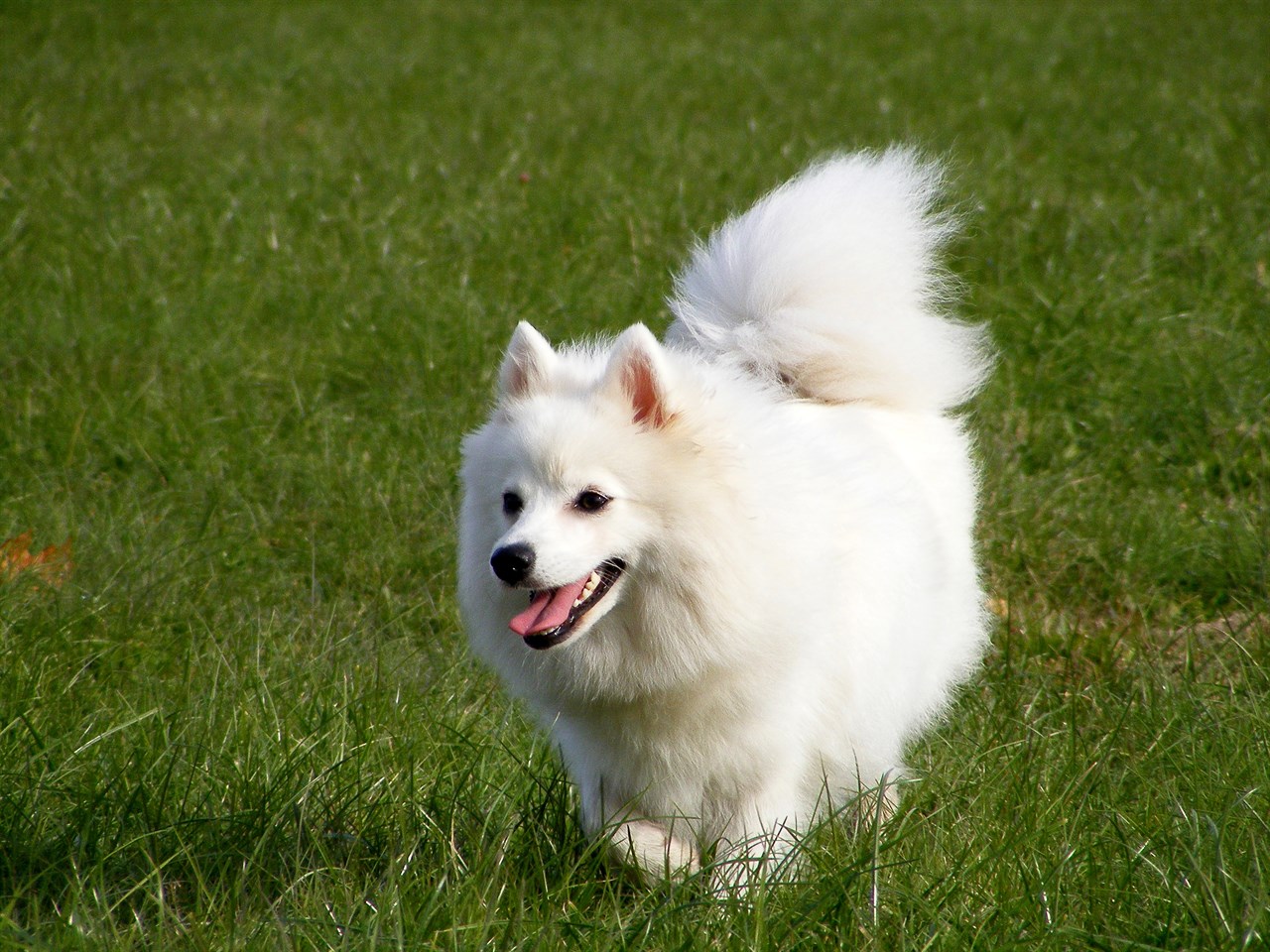Temperament, Personality, and Behaviour of the Japanese Spitz

The Japanese Spitz is renowned for its delightful temperament and charming personality. These dogs are a bundle of joy, known for their friendly, affectionate, and intelligent nature. Let's explore the key aspects of their temperament.
Friendly and Affectionate
Japanese Spitzes are naturally friendly dogs that typically get along well with people of all ages, including children. They thrive on human companionship and love being the centre of attention. Their affectionate nature means they often form strong bonds with their owners, making them loyal and devoted companions.
Intelligent and Trainable
These dogs are highly intelligent and eager to please, which makes them relatively easy to train. They are quick learners and can excel in obedience training and learning tricks. However, consistent and positive reinforcement-based training methods work best with Japanese Spitzes.
Alert and Protective
Japanese Spitzes have a keen sense of alertness. While they are not known for being aggressive, they can be excellent watchdogs. They will bark to alert their owners to potential intruders or unusual activities, which can be a valuable trait for those seeking a protective yet non-aggressive dog.
Playful and Energetic
Despite their small size, Japanese Spitzes are surprisingly active and playful. They enjoy regular exercise and interactive play sessions. Providing them with mental and physical stimulation is essential to prevent boredom and destructive behaviour.
Social and Good with Other Pets
With proper socialisation from a young age, Japanese Spitzes tend to be sociable and get along well with other dogs and pets. However, early socialisation is key to ensuring they grow up to be well-adjusted and friendly around other animals.
Quirky Traits
Japanese Spitzes are known for some quirky behaviours. They have a penchant for digging, which can be a source of amusement for their owners. They are also known to be fastidious groomers, often cleaning themselves much like cats. Additionally, their plume-like tails often wag in a circular motion, which adds to their endearing charm.
Potential for Separation Anxiety
One potential challenge with Japanese Spitzes is their tendency to develop separation anxiety if left alone for extended periods. These dogs thrive on human interaction and can become distressed when separated from their owners for too long. It's essential to gradually acclimate them to alone time and provide them with toys or puzzles to keep them occupied when you're away.
Clinginess
Japanese Spitzes are known for being affectionate and attached to their owners. They may exhibit some clingy behaviour, such as following their owners from room to room or wanting to be involved in all family activities. While this can be endearing to some, it's important to strike a balance between giving them attention and teaching them to be independent when needed.
What is the attitude of a Japanese Spitz puppy?
A Japanese Spitz puppy is typically playful, curious, and full of energy. They are eager to explore their surroundings and form strong bonds with their human family members.
Are Japanese Spitz aggressive?
Japanese Spitzes are not known for being aggressive. However, like any dog, their behaviour depends on factors such as upbringing, socialisation, and individual temperament. Proper training and socialisation can ensure they are well-behaved and friendly.
What is the friendliest Spitz?
Among the Spitz breeds, Japanese Spitzes are often considered some of the friendliest due to their affectionate and sociable nature.
Do Japanese Spitz get separation anxiety?
Yes, Japanese Spitzes are prone to separation anxiety. They thrive on human companionship and may become anxious when left alone for extended periods. It's essential to address this issue through gradual training and providing them with activities to keep them occupied.
What are the quirks of a Japanese Spitz?
Japanese Spitzes have some quirky behaviours, including a tendency to dig, fastidious grooming habits, and wagging their tails in a circular motion.
Are Japanese Spitz clingy?
Japanese Spitzes can exhibit clingy behaviour, as they are deeply attached to their owners and enjoy being close to them. It's important to strike a balance between affection and teaching them to be comfortable with some independence.
Japanese Spitz puppies for sale
- Find Japanese Spitz puppies for sale in ACT
- Find Japanese Spitz puppies for sale in NSW
- Find Japanese Spitz puppies for sale in NT
- Find Japanese Spitz puppies for sale in QLD
- Find Japanese Spitz puppies for sale in SA
- Find Japanese Spitz puppies for sale in TAS
- Find Japanese Spitz puppies for sale in VIC
- Find Japanese Spitz puppies for sale in WA